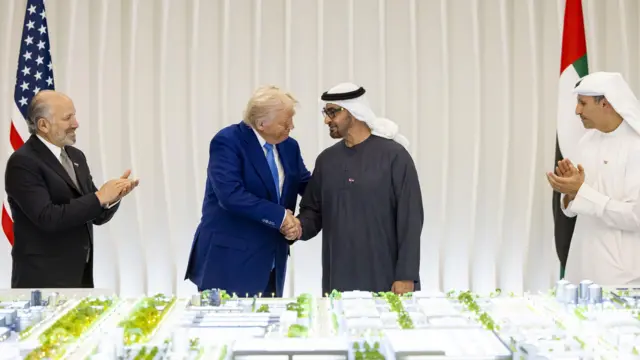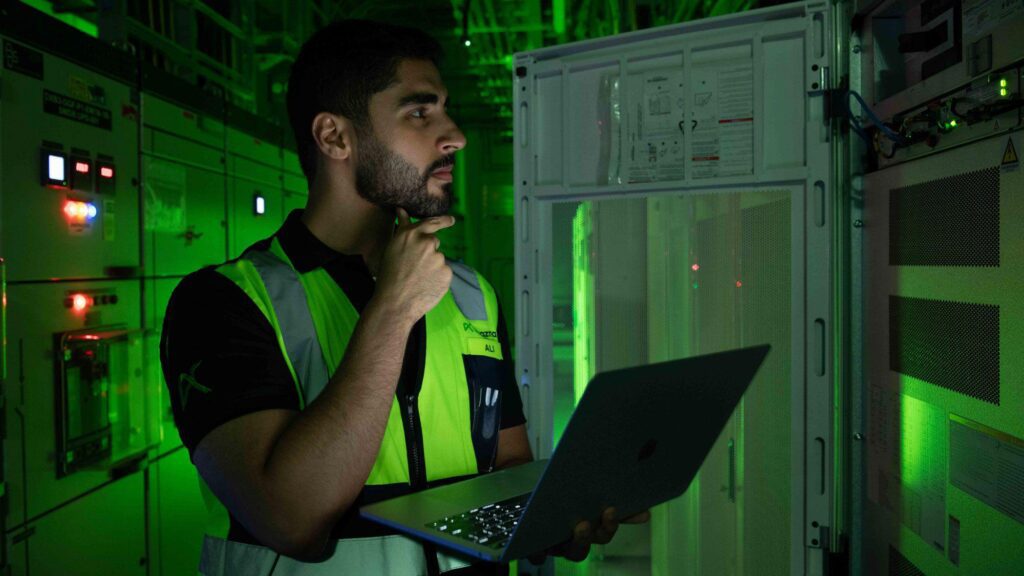The Gulf AI investment drive is rapidly becoming one of the most ambitious projects of the 21st century. Long known for their oil wealth, countries in the Gulf are now betting big on artificial intelligence (AI) as the foundation of their future economies. As global energy transitions gather pace and fossil fuel demand is expected to decline in the coming decades, Gulf leaders are preparing for a world beyond oil. For them, AI is the new oil — a resource that can fuel innovation, diversification, and global influence.
Why the Gulf is Turning to AI
For decades, oil has been the lifeline of the Gulf region. It built modern cities like Dubai, Doha, and Riyadh, funded infrastructure, and shaped global energy markets. But reliance on oil has also left Gulf economies vulnerable to price shocks and fluctuations in demand.
By embracing AI, the Gulf states are:
- Diversifying economies beyond hydrocarbons.
- Creating new industries that can provide long-term growth.
- Positioning themselves as global tech hubs.
Governments in Saudi Arabia, the UAE, and Qatar, among others, see AI as a tool to maintain economic strength while securing influence in an increasingly digital world.
The Scale of Gulf AI Investment
AI is not just a buzzword in the Gulf; it is backed by billions of dollars in strategic investments.
- Saudi Arabia: Through its Vision 2030 program, Saudi Arabia has committed to making AI a central pillar of its economic transformation. The country launched the Saudi Data and Artificial Intelligence Authority (SDAIA) to oversee AI initiatives, aiming to contribute $135 billion to its GDP by 2030.
- United Arab Emirates (UAE): The UAE was the first country in the world to appoint a Minister of State for Artificial Intelligence in 2017. It has launched a National AI Strategy 2031, aiming to integrate AI across government services, healthcare, education, and transport.
- Qatar: Qatar has announced large-scale investments in AI-driven research and innovation, leveraging its advanced digital infrastructure and partnerships with global universities.
Together, these nations are pooling resources to build regional AI leadership.
How AI Fits the ‘New Oil’ Vision
The phrase ‘new oil’ is often used to describe data and AI because of their transformative economic potential. Just as oil powered the industrial age, AI is powering the digital age. For the Gulf, the analogy has an added layer of urgency — a chance to replicate the oil era’s wealth with a new, sustainable driver.
AI offers Gulf states several opportunities:
- Economic diversification: AI-driven industries, from fintech to autonomous transport, can create non-oil revenue streams.
- Job creation: While AI disrupts some jobs, it also creates new ones in data science, cybersecurity, and digital services.
- Government efficiency: AI-powered governance can streamline public services and reduce costs.
- Healthcare advancement: Personalized medicine and predictive analytics can improve population health.
- Global influence: Early leadership in AI can cement the Gulf’s role in shaping international standards and regulations.

Mega-Projects and Smart Cities
The Gulf’s AI push is most visible in its mega-projects and futuristic cities.
- NEOM (Saudi Arabia): A $500 billion futuristic city designed to integrate AI across urban planning, energy, transport, and governance. NEOM is envisioned as a hub for innovation, attracting global talent and tech companies.
- Dubai Smart City: Dubai aims to be one of the smartest cities in the world by using AI to manage traffic, utilities, policing, and tourism.
- Qatar Smart Nation: Qatar is investing heavily in smart technologies to make its cities more connected, efficient, and AI-driven.
These projects showcase how AI is central to the Gulf’s new economic vision.
Partnerships with Global Tech Giants
Gulf AI investment is not happening in isolation. Regional governments are actively partnering with global leaders in AI.
- Microsoft, Google, and IBM have all established collaborations with Gulf states to accelerate AI adoption.
- Chinese firms such as Huawei and Alibaba are also heavily involved, providing infrastructure and expertise.
- Universities in the U.S. and Europe are working with Gulf research institutions to develop AI talent pipelines.
This international collaboration not only brings expertise but also positions the Gulf as a global AI crossroads.
Challenges Facing Gulf AI Investment
Despite the ambition, there are challenges:
- Talent shortage: Building a homegrown AI workforce requires time and education reforms.
- Ethical concerns: The use of AI in surveillance and governance raises privacy and human rights questions.
- Economic risks: Heavy spending on AI could strain budgets if projects fail to deliver.
- Global competition: The U.S., China, and Europe are also racing to lead in AI.
The Gulf will need to balance ambition with pragmatism, ensuring that investments translate into real-world outcomes.
The Role of AI in Gulf Societies
Beyond economics, AI is transforming daily life in the Gulf:
- Transport: Self-driving taxis and drones are being tested in Dubai and Riyadh.
- Healthcare: AI is being used for early disease detection and hospital management.
- Education: Smart learning platforms powered by AI are reshaping classrooms.
- Energy: AI is making oil and gas operations more efficient while supporting renewable energy integration.
This integration reinforces the Gulf’s vision of AI as a force for both modernization and cultural adaptation.
Gulf AI Investment and the Global Economy
The Gulf’s AI bet has global implications. If successful, Gulf countries could become AI exporters, providing software, services, and expertise to the world. Just as their oil once powered global industries, their AI capabilities could power the next industrial revolution.
Moreover, their investments could influence global standards on AI ethics, governance, and regulation.
Looking Ahead: Can AI Really Replace Oil?
The big question remains: can AI truly become the new oil for the Gulf?
- Yes, in potential: AI’s economic value is immense and can rival oil in long-term importance.
- No, in immediacy: Oil revenues still dominate Gulf budgets, and the transition will take decades.
What is certain, however, is that Gulf leaders see no alternative. Betting on AI is not optional — it is a strategic necessity.
Conclusion
Gulf AI investment is reshaping the future of one of the world’s most resource-rich regions. By embracing AI as the new oil, Gulf states are aiming to build economies that are diversified, resilient, and globally competitive. While challenges exist, the ambition is clear: to transform from energy exporters to digital powerhouses.
The Gulf’s gamble on AI may be one of the defining stories of the 21st century — a bold bet on technology to secure prosperity beyond oil.
Read More: Saudi Arabia’s Entertainment Scene: Nightlife and Events Redefined



